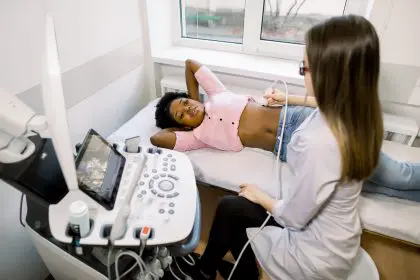Prostate cancer is a significant health issue that affects many men worldwide. Despite its prevalence, conversations about prostate cancer between fathers and sons are often overlooked or avoided. This article aims to shed light on why prostate cancer is an important health conversation for fathers and sons and how it can positively impact their health and relationship.
Understanding prostate cancer
Prostate cancer occurs in the prostate gland, a small walnut-shaped gland in males that produces seminal fluid. It is one of the most common types of cancer in men. Early detection is crucial as it significantly increases the chances of successful treatment. Understanding the basics of prostate cancer, its symptoms, risk factors, and treatment options can help fathers and sons approach the topic with the seriousness it deserves.
Symptoms and risk factors
Prostate cancer may not cause symptoms in its early stages. However, as the cancer progresses, men may experience:
- Difficulty urinating
- Frequent urination, especially at night
- Weak or interrupted urine flow
- Blood in the urine or semen
- Pain in the back, hips, or pelvis that doesn’t go away
Risk factors for prostate cancer include age (risk increases after 50), family history, race (African American men are at higher risk), and lifestyle factors such as diet and physical activity. Fathers and sons need to be aware of these risk factors and monitor any potential symptoms.
The importance of early detection
Early detection of prostate cancer can lead to better treatment outcomes. Screening tests such as the prostate-specific antigen (PSA) test and digital rectal exams (DRE) are essential tools in detecting prostate cancer at an early stage. Fathers should discuss these screening options with their sons, emphasizing the importance of regular check-ups and not waiting for symptoms to appear before seeking medical advice.
Breaking the silence: Why fathers and sons should talk about prostate cancer
Building awareness and understanding
Talking about prostate cancer helps build awareness and understanding. It allows fathers and sons to share information, ask questions, and clear up any misconceptions. Knowledge is power, and understanding the disease can reduce fear and anxiety associated with it. Open conversations can also encourage sons to adopt healthier lifestyles and be proactive about their health.
Emotional support and bonding
Discussing prostate cancer can strengthen the emotional bond between fathers and sons. It shows a willingness to tackle difficult topics and provides an opportunity for emotional support. Fathers who have experienced prostate cancer can offer valuable insights and advice, while sons can offer empathy and encouragement. This mutual support can create a deeper connection and foster a sense of unity in facing health challenges together.
Encouraging healthy habits and regular screenings
Conversations about prostate cancer can motivate fathers and sons to adopt healthier habits. Lifestyle changes such as maintaining a balanced diet, staying physically active, and avoiding smoking can reduce the risk of prostate cancer. Additionally, regular screenings can detect potential issues early, leading to prompt treatment. Fathers should lead by example and emphasize the importance of these habits to their sons.
Practical steps for starting the conversation
Choose the right time and setting
Finding the right time and setting for this conversation is crucial. Choose a moment when both parties are relaxed and not preoccupied with other tasks. A private and comfortable setting can make it easier to discuss sensitive topics openly.
Be open and honest
Approach the conversation with openness and honesty. Share personal experiences if applicable, and encourage sons to ask questions and express their concerns. Avoid using medical jargon and keep the discussion simple and straightforward.
Use reliable resources
Providing reliable resources can enhance the conversation. Share information from reputable sources such as medical websites, pamphlets from healthcare providers, or books on prostate cancer. These resources can help clarify facts and provide additional support.
Conclusion: Strengthening the father-son bond through health conversations
Prostate cancer is a critical health issue that warrants open discussions between fathers and sons. These conversations build awareness, provide emotional support, and encourage healthy habits and regular screenings. By addressing prostate cancer openly, fathers and sons can strengthen their bond and work together to maintain their health.
Engaging in these discussions can lead to early detection, which is crucial for successful treatment outcomes. Early detection can significantly reduce the risk of complications and increase the likelihood of recovery. When fathers share their experiences and knowledge about prostate cancer, it empowers their sons to take proactive steps in managing their health. This mutual support can also alleviate fears and anxieties associated with the disease.
Moreover, these conversations can foster a sense of unity and understanding. Fathers and sons who communicate openly about health issues can develop a deeper emotional connection. This connection is essential for navigating other life challenges together, creating a supportive and trusting relationship.
It is never too early to start this important conversation, and doing so can have lasting positive effects on both their physical and emotional well-being. Fathers and sons should seize the opportunity to discuss prostate cancer, ensuring that both generations are well-informed and prepared to face this health challenge together. By doing so, they can create a legacy of health consciousness and emotional resilience that will benefit their families for years to come.
This story was created using AI technology.
















